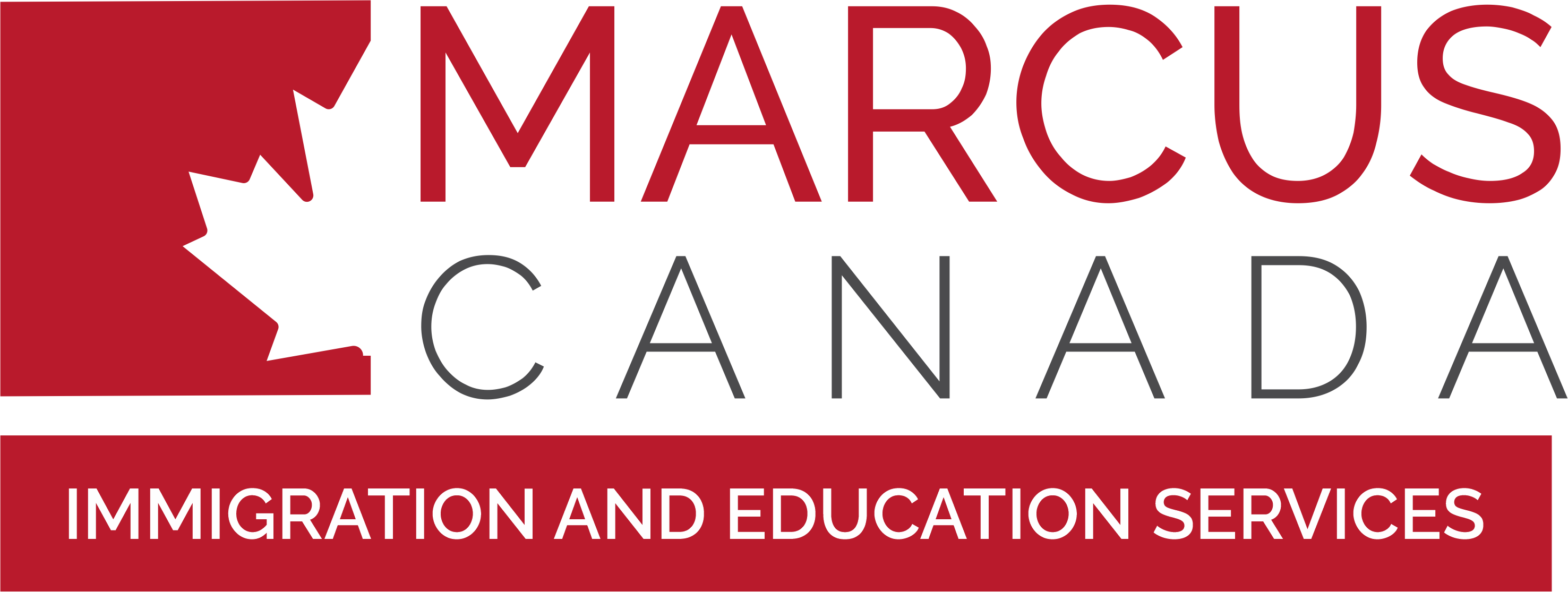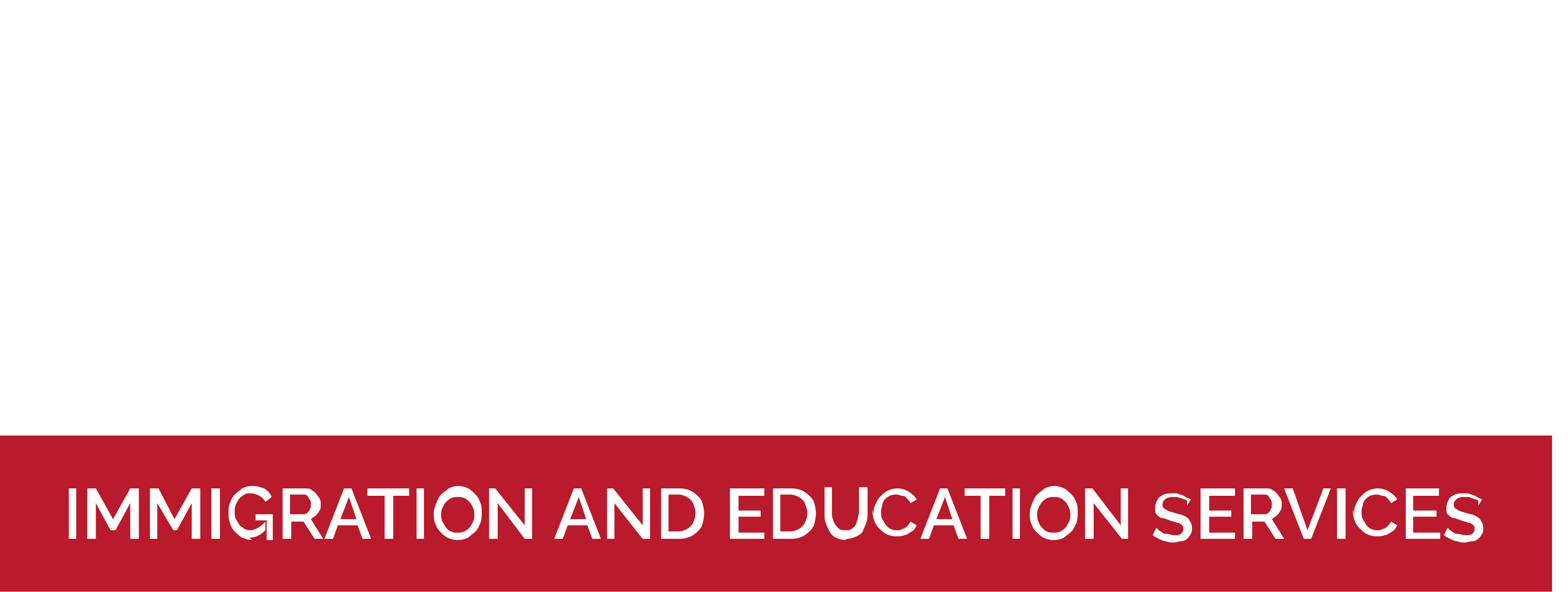Immigration Through Higher Education
We offer the best solutions for your future and the future of your child.
- Expert Consulting on Education and Immigration
- ● Strategy for Obtaining PR (Permanent Residency) in Canada
- ● Support at Every Step of the Process
Whether you're planning to study in Canada or helping your child achieve their educational goals, we provide expert guidance to ensure success throughout the entire immigration process. Let us assist you in planning your path to Permanent Residency and achieving your long-term goals in Canada.
Based on 65 reviews
Student Path to Immigration in Canada
Canada is a dream destination for many immigrants due to its strong economic development, stable social systems, and high-paying job opportunities. There are several immigration programs available, and one of the most popular ways to immigrate to Canada is through education.
Canadian authorities highly value those who have studied and worked in the country, as they possess qualities that support successful integration: they pay taxes, do not rely on social benefits, and have good health. Moreover, the knowledge of Canadian culture and life plays a key role in adaptation.
However, this pathway requires careful planning and strategy. Success is only possible with meticulous attention to all stages—from choosing a study program to subsequent employment. Competition is high, which makes strategic planning crucial for success.
The “Student Path” Program Includes the Following Stages:
- Choosing a University and Registration
- Applying for a Study Visa and Study Permit
- Obtaining a Canadian Degree
- Applying for an Open Work Permit and Extending the Visa
- OR, if eligible, directly applying for Permanent Residency (PR)
- Gaining 1-2 Years of Work Experience
- Applying for Express Entry via the Canadian Experience Class Program
- Living for 2 Years as a Permanent Resident (PR) and Applying for Canadian Citizenship
Important Nuance:
An Open Work Permit (PGWP) is available only after completing certain programs at public Canadian colleges or universities. Students graduating from private colleges are not eligible for this work permit.
The length of your PGWP depends on the length of your academic program:
- If you completed a program less than 2 years, your PGWP will match the duration of your studies.
- If your program lasted 2 years or more, your PGWP will be valid for 3 years.
The PGWP process can change based on immigration policies, so it’s important to stay updated. We recommend consulting with us directly for the most accurate and current information. We can help you navigate the latest regulations and prepare your documents accordingly.
College Programs (Diploma Programs without Degree)
These are 2-3 year programs designed to provide graduates with modern knowledge and practical skills in a specific profession. After completion, students receive a certificate or diploma (depending on the program), but not an academic degree.
Cost: CAD 18,000 – 21,000 per year.
Bachelor’s Degree (Undergraduate Programs with Academic Degree)
Bachelor’s programs typically last 4 years, culminating in a bachelor’s degree. Most programs start in September and/or January. These programs provide deep academic study, preparing students for professional careers or research work in higher education.
Some programs include co-op opportunities for hands-on work experience during study.
Cost:
- Colleges: CAD 19,000 – 22,000 per year.
- Universities: CAD 27,000 and higher (e.g., University of Toronto – CAD 40,000 per year).
Immigration Path:
- 4 years of study at university → Open Work Permit (up to 3 years) → 1 year or more of work experience → PR (Permanent Residency) → 2 years in Canada as PR → Canadian Citizenship.
Post-Graduate Programs
Post-graduate programs are for students who have already completed a degree (from any country). These are specialized 2-4 semester programs designed to provide advanced knowledge in a specific professional field.
Graduates receive a post-graduate certificate.
Master’s Programs in Canada
A Master’s degree in Canada is necessary for obtaining the highest academic qualifications. It’s available to anyone with a bachelor’s degree and who wants to continue studying a specific subject. The Western educational system has a simple structure:
- Bachelor’s
- Master’s
- PhD
Master’s programs give significant advantages in the Canadian job market, both in terms of job opportunities and salary levels.
Studying for a Master’s in Canada as an International Student
Canada is open to international students, making it a popular destination for continuing education. Compared to other countries, the application process for Canadian universities can seem less complex: it usually requires just one language proficiency test (TOEFL or IELTS), and tuition fees are often lower than in Europe or the U.S. Canadian degrees are highly regarded worldwide.
For admission to a Master’s program, the following documents are typically required:
- Bachelor’s degree certificate
- Transcript of grades
- TOEFL/IELTS scores (minimum 500 for TOEFL, or 6.5 for IELTS)
- Resume
- Letters of recommendation
In some cases, specialized exams like GMAT, MCAT, or other industry-specific tests may be required, depending on the program.
It’s important to understand that while the application process may not seem too difficult, it requires thorough preparation and strategic planning. Choosing a program, gathering documents, and meeting all requirements must be done carefully for successful admission.
Immigration Benefits for Master’s Students
Master’s students in Canada are granted special consideration by immigration authorities. They have the ability to apply for a work permit for their spouse, making this a more attractive option for students planning to study with their families.
How Much Does Education in Canada Cost?
If you want to know the cost of studying in Canada for a specific program or have other questions about admission and programs, we recommend starting with a free consultation with our education expert.
Expert Consulting on Education and Immigration
- Strategy for Obtaining PR (Permanent Residency) in Canada
- Support at Every Step of the Process
Let us guide you through understanding the costs and help you with your plans to study and potentially immigrate to Canada. Our experts will ensure you have all the information needed to make informed decisions about your education and future in Canada.
How Much Does Education in Canada Cost?
Studying in Canada offers excellent opportunities, with a quality education and the potential for employment in Canada, the U.S., or any other developed country. However, the full costs associated with studying in Canada may not always be immediately clear. So, how much does education in Canada cost for international students? Let’s break it down.
Factors Affecting the Cost of Education in Canadian Universities
- Reputation of the Institution
Tuition fees at prestigious universities, like the University of Toronto, are typically higher than those at lesser-known institutions. However, no matter the cost, the quality of education remains high at all government-accredited institutions. - Region of the University
The province where the university is located can significantly impact tuition fees. For example, universities in Ontario, Nova Scotia, and Saskatchewan tend to have higher fees, while universities in regions like New Brunswick offer more affordable options (programs can start at CAD 11,000 per year!). - Program of Study
Different programs have different costs. For example, medical programs and law programs are generally more expensive. The exact cost varies depending on the university. - Type of Institution
Private colleges tend to be cheaper than public universities. However, it’s important to note that students graduating from private colleges cannot apply for the Post-Graduation Work Permit (PGWP), unlike graduates from public colleges. - Type of Degree
Bachelor’s and Master’s programs are more expensive than diploma programs at colleges. Some PhD programs can even be fully funded for certain students.
Average Tuition Costs for Different Degrees
- Diploma Programs (Undergraduate): 2-3 years
- Cost in Ontario: CAD 18,000 – 19,000 per year.
- Bachelor’s Degree (4 years)
- Cost: CAD 19,000 – 22,000 per year, with top universities like University of Toronto reaching up to CAD 45,000 per year.
- Master’s Degree (1-2 years)
- Cost: Starting at CAD 15,000 per year.
- PhD Programs (4 years)
- Cost: Varies individually.
- Post-Graduate Programs (1-2 years)
- Cost: CAD 18,000 – 22,000 per year.
How to Save on Education Costs in Canada
- Choose a Smaller City: Education and living costs are generally lower in smaller cities.
- Pick a Less Populated Province: For example, New Brunswick offers programs starting at CAD 11,000 per year.
- Apply for Scholarships: You can get up to CAD 5,000 per year for good academic performance.
- Work While Studying: Most students are eligible to work part-time during their studies (limited hours per week). This helps with living expenses and provides valuable Canadian work experience.
- Buy Used Textbooks: Second-hand textbooks or PDF versions can be significantly cheaper.
- File Taxes: Even if you don’t work, you should file a tax return, as you may be eligible for a tax refund once you start working.
Actual Costs for Studying and Living in Canada
The total expenses for studying in Canada include not only tuition but also other essential costs:
- Application Fee: CAD 100 – 150 (registration fee).
- Additional Fees: These include student activity fees, lab fees, and textbook costs, which can range from CAD 900 to 2,500 per semester.
- Accommodation:
- If you live off-campus, rent can range from CAD 1,200 to 2,800 per month.
- Transportation: Monthly public transport costs are around CAD 100 – 200.
- Health Insurance: Mandatory health insurance, which costs about CAD 50 – 100 per month (some colleges include this in the tuition fee).
- Entertainment and Miscellaneous Expenses: Students should also budget for personal expenses, such as leisure activities and socializing.
How Much Money Should You Have for Your Visa Application?
When applying for a student visa, you need to:
- Pay for at least the first semester of tuition (it’s highly recommended to pay for a full year).
- Show proof of sufficient funds for living expenses for the first year. The amount varies by province, but a common benchmark is around CAD 22,000 for living expenses.
How Much Does Education in Canada Cost?
If you want to know the cost of education in Canada for a specific field, or if you have other questions regarding admission and programs, we recommend starting with a free consultation with our education expert.
Expert Consulting on Education and Immigration
- Strategy for Obtaining PR (Permanent Residency) in Canada
- Support at Every Step of the Process
Let us guide you through understanding the costs of studying in Canada and help you with the entire process—from choosing the right program to securing your study visa and preparing for life in Canada. Our experts are here to ensure you have all the necessary information for a smooth transition to studying and possibly immigrating to Canada.
Individual consultation with a licensed immigration counselor
You can book an individual consultation with licensed professional, Marcus Canada CEO Marina Garvey (R514071) to get competent answers to all your questions.
Book a consultation
Marcus Canada is not a virtual agency , we have an office in Toronto
We work officially in Canada, so you can come to our office by appointment.

